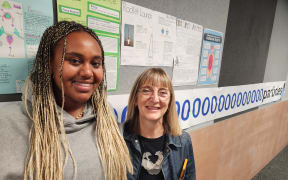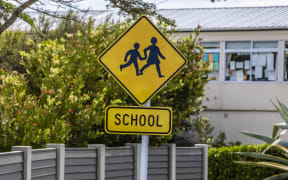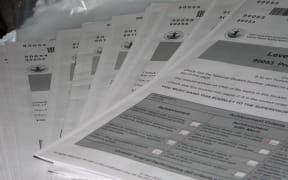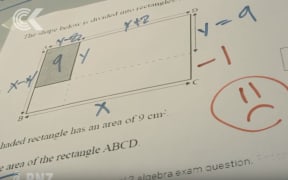
Minister of Education Erica Stanford says most schools are already meeting the government's requirement to teach children in Years 0-8 reading, writing and maths for an average of at least one hour a day, but the policy will ensure consistency. Photo: 123RF
The minister of education says she wants more evidence about what works in schools and more detailed data about how well children are performing.
In an interview with RNZ's Nine to Noon programme Erica Stanford said there would be changes for initial teacher education, the education ministry, school property, and the curriculum.
The government has already introduced a requirement that schools teach children in Years 0-8 reading, writing and maths for an average of at least one hour a day.
Stanford said most schools already met the requirement and the policy would ensure consistency.
She said schools could teach the subjects across the school day and as part of lessons in other subjects.
"We're not expecting a five-year-old who's brand new to school to sit down and do an hour of maths. That of course is not our intention," she said.
"They'll sit down before class and start playing round with shapes and colours which of course is mathematics and there's games and activities and you can do maths in music. There's so many opportunities."
However, Stanford said she expected schools to have a "laser focus" on reading, writing and maths and they would be expected to meet the hour-a-day average even in weeks when they had sports days and other events.
Stanford said a lot of money was spent on education, but as minister, she had found there was often little evidence about how well particular initiatives were working.
"So there is going to be from our government a fundamental shift in the way that we evaluate what we do and making sure that we are getting good value for money, we're getting the outcomes that we want and if things aren't working we stop doing it and shift it elsewhere.
"There is going to be a big work programme and we're going to use data a lot more than we have been and and we will be bolstering numbers in the ministry of the people who work in those data teams," she said.
Stanford said she also wanted better information from schools about children's achievement.
She said schools used a variety of tests to assess children, which made it difficult when children moved schools, and did not provide her with detailed figures.
"It's all over the place," she said.
Stanford said she wanted the curriculum to specify the progress children should make each year and schools to measure and report on that progress twice a year.
"This is low-stakes, light-touch check-ins to make sure that children are progressing and we catch them before they fall and that's what parents want to know," she said.
"We just want to make sure it is the same, consistent assessment across the country so that we have clear, concise information so I know where to put resource and parents know where their kids are at."
Stanford said previous work on the school curriculum would continue, but ensuring each curriculum was internationally comparable, content-rich and clearly stated what children were expected to learn each year.
She said initial teacher education was not preparing new teachers well and the government had a big work programme to address that.
"We are looking at what's working and which teachers are being prepared the best and how do we emulate that," she said.
Stanford said the government would rewrite the National Education and Learning Priorities and work with the Teaching Council to ensure initial teacher education providers were doing a better job.
She said the ministry of education's curriculum centre was an excellent resource for schools and she expected its staff to work directly with schools to support good teaching.
Stanford said research indicated 60 percent of the problems facing education came from areas such as housing, healthcare and poverty.
She said the government had indicated there would always be more money for education and any cuts would occur in back-office functions.







